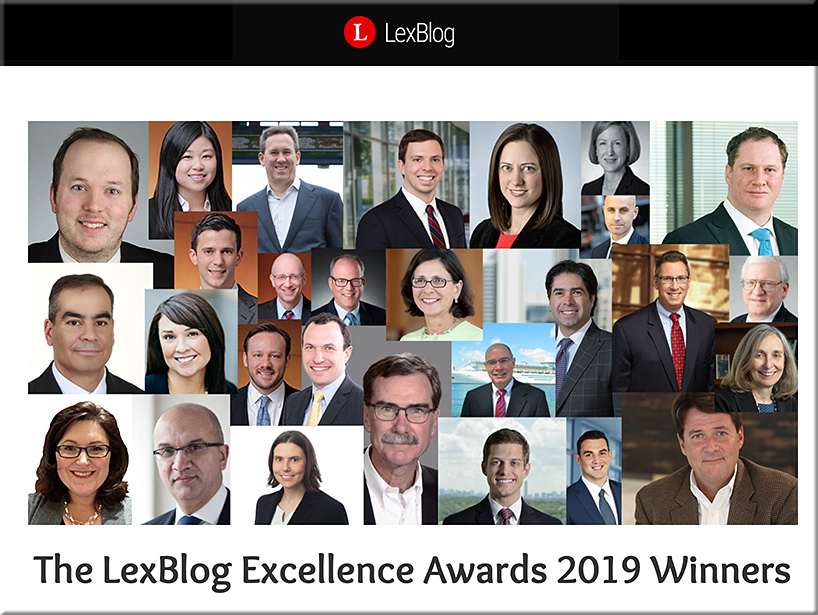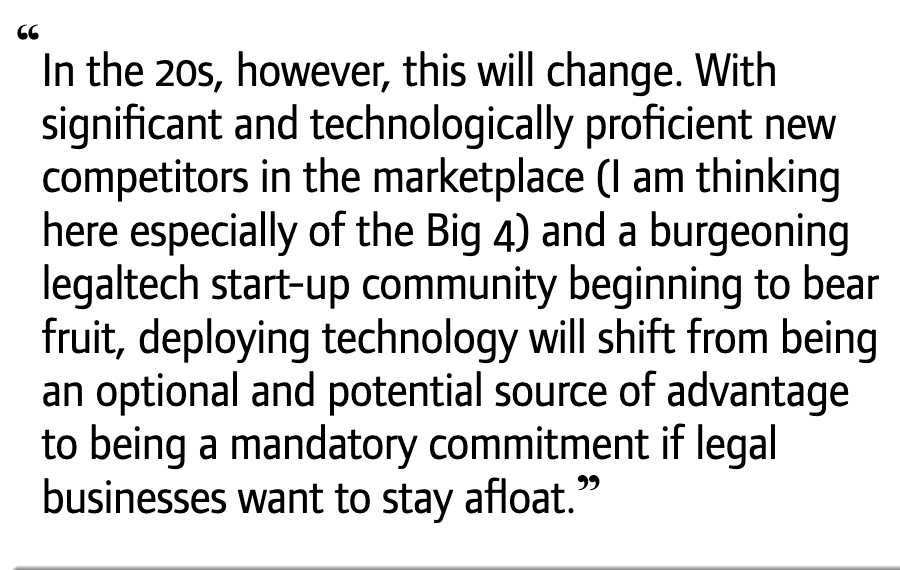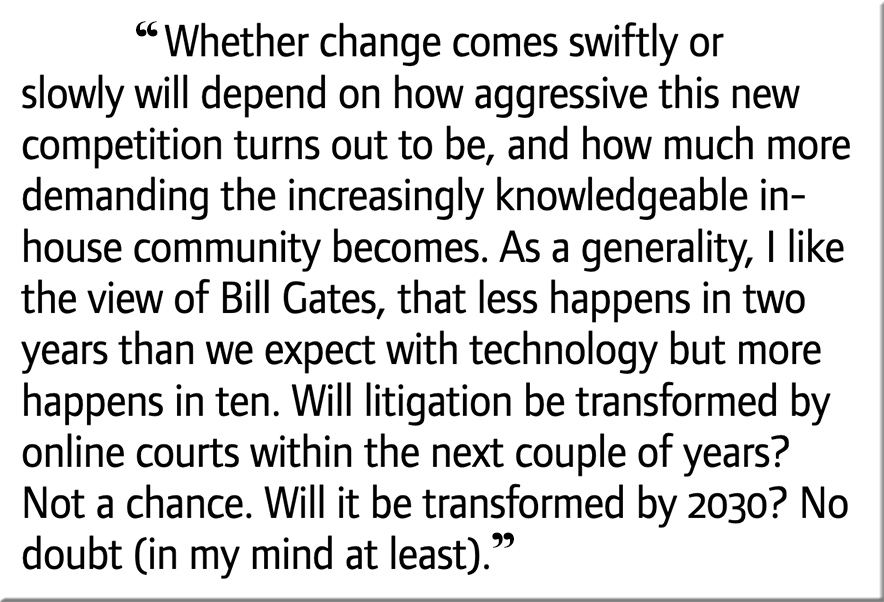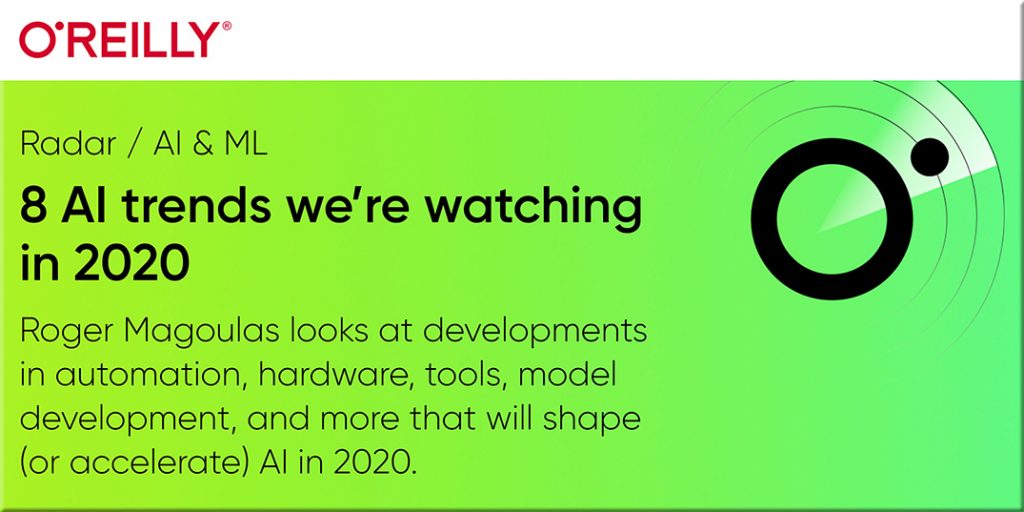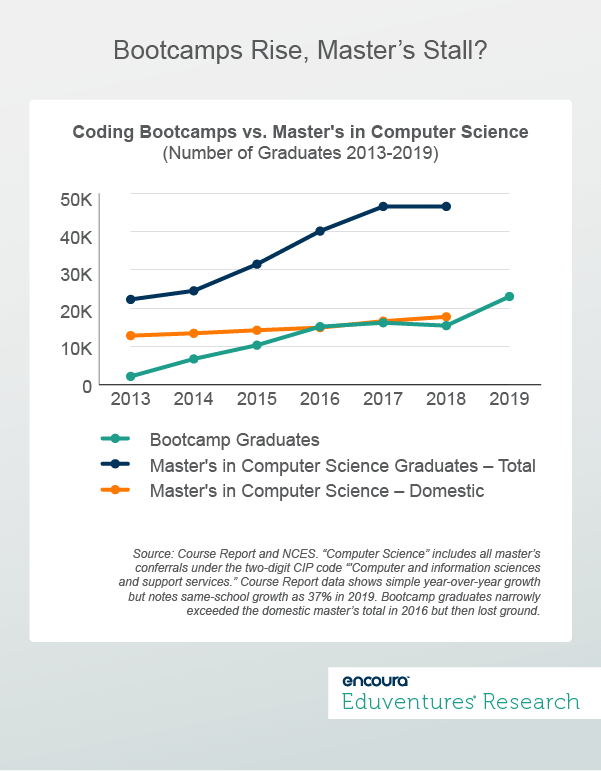Why the traditional US model of educating tomorrow’s lawyers must change — from iam-media.com by Megan Carpenter
Disruption is increasingly affecting the legal services industry but legal education is not evolving fast enough. Greater specialisation in areas like IP, argues Franklin Pierce School of Law dean Megan Carpenter, could improve the training of lawyers and non-lawyers alike
Excerpt (emphasis DSC):
But the legal education we need today is not the one-size-fits-all model of the past. For 150 years, law schools and the legal services industry have combined to make legal education a precious commodity, bundled in a very specific way. Like the cable industry or print news media of yore, the education that qualifies people for the legal profession in the US has been one-size-fits-all, without regard to particular practice areas or specialisations and without responding to the diversification of the legal services market.
The legal profession should take a page from the playbook of the medical profession here. Under “healthcare occupations”, the US Bureau of Labor Statistics Occupational Outlook Handbook lists 46 professions, from doctors and nurses to physician assistants, medical extenders, technologists and technicians. Yet, under “Legal Occupations”, the BLS Handbook lists only five positions. By failing to adapt like the medical industry has to a variety of roles for different types of legal professionals, including education that fits those roles, the haves and have-nots of legal knowledge have been defined in a way that is not sustainable and fails to reflect the needs of the marketplace.
Law schools should not resist the expanding market for alternative legal service providers and legal tech; rather, they should lead the charge to provide legal education to people who need it, even if in a different form than such education has taken in the past. There should be more undergraduate and community-college programmes that provide appropriate legal training. The University of Arizona College of Law launched the first undergraduate bachelor degree in law in the US in collaboration with the broader university and other schools should do the same.
From DSC:
I’ve also been thinking about the need for more specializations within law schools, the legal realm, and in the Bar Exam itself.









